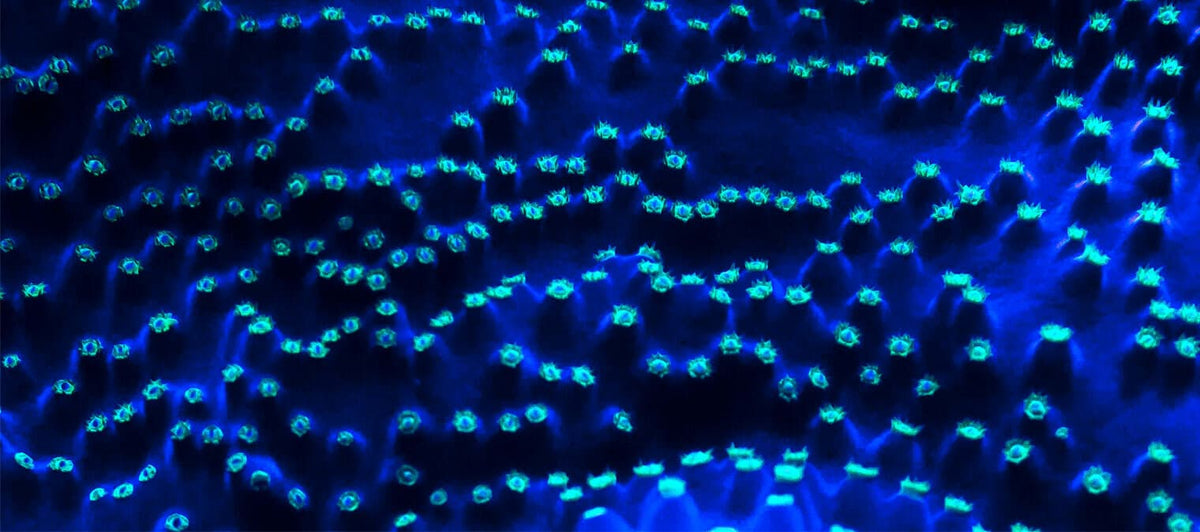8 amazing discoveries in modern in cell biology
Read more
Learn about some of the most recent discoveries in cell biology including the Shinya Yamanaka discovery of reprogramming mature cells, how horse cells communicate and more.
Calculated at checkout
$0.00 USD

Learn about some of the most recent discoveries in cell biology including the Shinya Yamanaka discovery of reprogramming mature cells, how horse cells communicate and more.
We’ve come a long way from when Robert Hooke discovered cells. If you’ve read our article “Introducing history’s greatest cellular scientists” you’ll know it’s taken many great minds and scientific breakthroughs to carry cell biology to where it is today. Recent discoveries in cell biology have allowed us to understand ourselves, medicine and the future of human health in ways that humans before us wouldn’t have been able to comprehend. If you’d like to learn about some of these recent cell discoveries, keep reading.
The Nobel Prize winning John B. Gurdon and Shinya Yamanaka discovery that mature skin cells can be reprogrammed into immature stem cells is a breakthrough in cell biology. It transformed what scientists knew about cell development by showing that cells can evolve into any body tissue. Before this research, scientists weren’t aware that mature cells could change into a different state. This work has paved the way for new fields of related research and healthcare solutions.
A 2021 research paper published in Frontiers in Molecular Bioscience found that gut bacteria and mitochondria communicate to regulate and extend energy in horses. What does this mean for the future of cell biology? Well, to start with, it helps scientists better understand chemical signals and gene expression. It means there’s potential to create cellular supplements that could support the athletic ability both of horses and humans – an area that MitoQ has already shown significant promise in. In an interview with phys.org, one of the paper’s authors - Dr. Nuria Mach – explains, “Studying horses is a good way to assess the link between gut bacteria and mitochondria, because the level of exercise, and thereby mitochondrial function, performed by a horse during an endurance race is similar to that of a human marathon runner,”. Athletes, stay tuned.

Until recently, experts believed the brain stopped developing once it was fully matured. But multiple research experiments have since shown that it continues to rewire itself as we learn and perform new tasks. Certain brain activities can help to create new connections between nerve cells, which helps to develop your brain throughout your life. Researchers believe mental stimulation may also help the brain grow new cells, support neuroplasticity and increase cell reserves. To support your brain’s development, Harvard Medical School recommends participating in activities such as painting, reading, taking courses and solving puzzles.
In a 2021 research paper, scientists outlined a new cell discovery within the eye’s retina: a nerve cell named “Campana”. What’s special about this discovery? Other than it being a previously unknown cell, this knowledge allows scientists to develop a clearer understanding of the body’s central nervous system and possibly means there’s a whole new class of retinal neurons. Scientists are still exploring exactly what the Campana cell does. So far, they know it relays visual cues from photoreceptors.
The creation of a biohybrid fish – an analog fish that has been constructed using human cardiac cells obtained from stem cells – has brought scientists one step closer to being able to build an artificial heart. The research, published in Science in 2022, provides advanced findings on how to create artificial muscular pumps. Created by researchers from Harvard University and Emory University, the fish’s ability to swim at the rhythm of a pumping heart is triggered by the cardiac cells. In an interview with Wyss Institute, the study’s senior author Kit Parker elaborated that the ultimate goal of this research is to learn how to build an artificial heart.

In 2021, Cell published research findings that have provided scientists with a deeper understanding of the evolution of animal immune responses. Before this study, very little was known about cell types or the molecular biology of coral reefs. Initially, the research aimed to investigate single cells within a type of coral named Stylophora pistillata. 40 cell types were defined in the study, and among them were two new immune cell types that likely support the resilience of coral reefs against environmental stressors.
Researchers from the Perelman School of Medicine at the University of Pennsylvania recently discovered a cell deep within human lungs that may play an important role in supporting lung health. The cells, now known as respiratory airway secretory cells, were discovered while researchers were in the process of investigating cells within human lung tissue. Some important features of these cells are that they support the regeneration of other cells and help to maintain and regenerate alveolars (tiny air tubes within your lungs that play a key role in your body’s ability to breathe). The discovery of these cells could support further research in lung health medicine.
2022 has been a big year for cellular discoveries. Continuing from the cellular reprogramming discoveries of John B. Gurdon and Shinya Yamanaka, researchers from the Babraham Institute have found a way to regenerate older skin cells and partially restore their functions. Based on molecular measures, their method makes older skin cells behave like cells that are around 30 years younger. If scientists can find a way to apply this method to other types of cells, it could mean big things for the world of regenerative medicine.
Find out what researchers have discovered about MitoQ’s ability to fight cell stress

Health & Nutrition | MitoQ | Performance
Discover the top Omega 3 supplements for women to support optimal health. Explore your best options and find the right fit for your needs. Read more!
Dec 21, 2025

MitoQ on The Balancing Act. Read the full interview here.
Dec 10, 2025 |4 mins to read